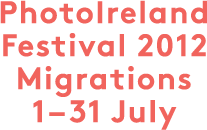
The book “Migration History in World History – Multidisciplinary Approaches” is edited by Jan Lucassen, Leo Lucassen and Patrick Manning.
Migration is the talk of the town. On the whole, however, the current situation is seen as resulting from unique political upheavals. Such a-historical interpretations ignore the fact that migration is a fundamental phenomenon in human societies from the beginning and plays a crucial role in the cultural, economic, political and social developments and innovations. So far, however, most studies are limited to the last four centuries, largely ignoring the spectacular advances made in other disciplines which study the ‘deep past’, like anthropology, archaeology, population genetics and linguistics, and that reach back as far as 80.000 years ago. This is the first book that offers an overview of the state of the art in these disciplines and shows how historians and social scientists working in the recent past can profit from their insights.
It contains four different contents:
A: Historical approaches
. Migration history: multidisciplinary approaches. (Jan Lucassen, Leo Lucassen, Patrick Manning)
B: Biological Approaches
. Population genetics and the migration of modern humans (Homo sapiens). (Peter de Knijff) . A brief introduction to geochemical methods used in assessing migration in biological anthropology (Shomarka Keita)
C: Linguistic approaches
. Prehistoric migration and colonization processes in Oceania: a view from historical linguistics and archaeology (Andrew Pawley)
. Linguistic testimony and migration histories (Christopher Ehret)
. The archaeo-linguistics of migration (Patrick McConvell)
D: Anthropological approaches
. Ancient immigrants: archaeology and maritime migrations (Jon M. Erlandson)
. The family factor in migration decisions (Jan Kok)

A Landmark Study of the Human Journey
Where do you really come from? And how did you get to where you live today? DNA studies suggest that all humans today descend from a group of African ancestors who—about 60,000 years ago—began a remarkable journey.
The Genographic Project ( hosted by The National Geographic) is seeking to chart new knowledge about the migratory history of the human species by using sophisticated laboratory and computer analysis of DNA contributed by hundreds of thousands of people from around the world. In this unprecedented and of real-time research effort, the Genographic Project is closing the gaps of what science knows today about humankind’s ancient migration stories.
The Genographic Project is a multi-year research initiative led by National Geographic Explorer-in-Residence Dr. Spencer Wells. Dr. Wells and a team of renowned international scientists and IBM researchers, are using cutting-edge genetic and computational technologies to analyze historical patterns in DNA from participants around the world to better understand our human genetic roots. The three components of the project are: to gather field research data in collaboration with indigenous and traditional peoples around the world; to invite the general public to join the project by purchasing a Genographic Project Public Participation Kit; and to use proceeds from Genographic Public Participation Kit sales to further field research and the Genographic Legacy Fund which in turn supports indigenous conservation and revitalization projects.
You will find here the full spectrum of interesting themes like:
– Unique heritage of Afghan population
– Basque roots revealed through DNA analysis
– Genetic Traces of Historical Expansions: Phoenician Footprints in the Mediterranean
And if you want to learn about your deep ancestry you can join The Genographic Project!
ploads/2012/04/1965462.jpg” alt=”The book cover- a photo of people playing on a waterfall” width=”304″ height=”475″ />
By Luigi Luca Cavalli-Sforza and Francesco Cavalli-Sforza.
300 pp. Reading, Mass., Addison–Wesley, 1995.
Luigi Luca Cavalli-Sforza draws upon his lifelong work in archaeology, anthropology, genetics, molecular biology, and linguistics, to address the basic questions of human origins and diversity. Coauthored by his son, Francesco, the book answers age-old questions such as: Was there a mitochondrial Eve? Did the first humans originate in Africa or in several spots on the planet at about the same time? How did humans get onto North America, the tip of South America, and Australia? Can the history of humankind be reconstructed on the basis of today’s genetic situation?
Cavalli-Sforza presents in a single volume for the non-specialist the fruits of over forty years of research. After providing a thorough grounding in evolutionary theory, Cavalli-Sforza takes readers back to the heady times of 1961-62 when he and a few colleagues were able to bring together genetic data on blood groups for fifteen populations spread out on five continents. By computing the genetic distance between pairs of populations, these scientists were able to develop an evolutionary tree that looks surprisingly like the ones reconstructed today, even with fifteen times more information. Using this crude tree, scientists could trace the approximate routes modern humans took in colonizing the earth 100,000 years ago and discover when populations split off from each other to form new groups. In the course of his work, Cavalli-Sforza joined forces with archaeologists, linguists, anthropologists, and molecular biologists. He shows how both archaeological and genetic data were used to track human migrations during the spread of agriculture; he probes such topics as the existence of a single ancestral language and the relationship between biological and linguistic evolution;and he brings us up to date with his current work as chief sponsor of the human genome diversity project, an ambitious attempt to analyze the most significant individual variations in human genomes.
Luigi Luca Cavalli-Sforza is Professor of Genetics Emeritus at Stanford University Medical School. He is the author of a number of seminal scientific books. Francesco Cavalli-Sforza is a creator and producer of educational films, based primarily in Italy.









